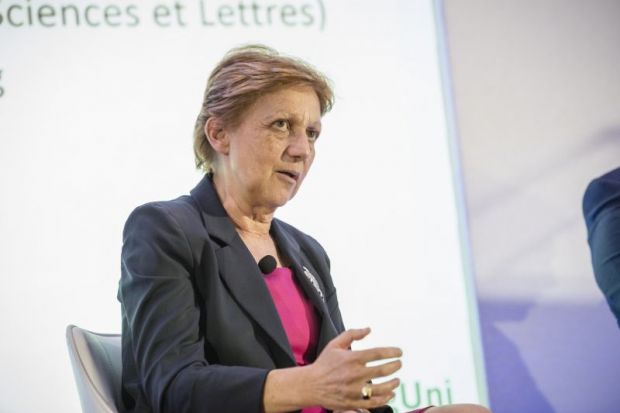For almost 25 years, the Daily Mail-Evening Standard printworks in London’s Docklands was a hive of people and cutting-edge manufacturing, producing millions of tabloids every day.
Things are a lot quieter since the Harmsworth Quays press – once used as a location for James Bond film Tomorrow Never Dies – closed a decade ago, but a corner of what was once Europe’s largest printworks has returned to its technology-rich roots, with the opening of The Engineering & Design Institute, known as TEDI-London.
The institute’s modernist campus building is surrounded by a number of apartment complexes under construction as part of the £4 billion master plan that will transform Canada Water from a post-industrial urban slab into London’s first new town centre in 50 years, complete with 3,000 new homes, workspace for 20,000 jobs and green public spaces and arts venues.
Delivering that vibrant urban centre is one of the reasons TEDI-London has located itself in Rotherhithe rather than a more buzzing London quarter, explained Judy Raper, TEDI-London’s dean and chief executive. “We had the chance to go to Stratford but we want to be part of this planning development – we have projects for our students for the next 15 years,” said Professor Raper, who insisted that the landlord, British Land, is keen to involve would-be engineers in many of its projects. Not only built environment either: students involved in summer schools to help develop lesson plans have already, she said, contributed to a filtration project aiming to make the quay’s water drinkable and an initiative to turn Canada Water into a “dementia-friendly” community via the creation of personalised monitors and alarms. Work to create a nerve stimulator for stroke patients has even led to a patent pending approval, added Professor Raper.
“We’ve already had 25 visits from industry academics since we opened in September – all that builds contacts, networks and links to industry that helps with internships,” she said.
At present, there are only 25 students but recruitment – made doubly difficult for new institutions by Covid restrictions and the lack of a finished building – is tripling this year, with room for about 100 students per cohort.
Those who take the plunge with TEDI-London can expect a more hands-on engineering education than they might get elsewhere, said Professor Raper, a former dean of engineering at the University of Sydney who left her position as deputy vice-chancellor (research) at the University of Wollongong in 2019 to lead TEDI-London. After just three months, students have already been building remote-controlled robots and disassembling air conditioning units to rebuild them in more energy efficient ways.
The global design engineering degree run by TEDI-London – in which students learn online in the morning and often apply that information to technical problems in the afternoon – encourages people to work together to solve problems, she continued. “When you have a diverse body of students, you teach each other – it’s what we used to do at university but could never tell the academics because we’d be accused of cheating – but it wasn’t cheating, it was talking about problems,” she recalled.
Beyond the challenge of attracting students to a brand new institution in a mostly student-free part of London, Professor Raper faces the additional task of making sure her novel educational model satisfies the regulations of the Office for Students, which recently gave it degree-awarding powers, and the Quality Assurance Agency (“they are visiting us 11 times this year – and we’re up for that”), but also the institute’s three main academic backers, King’s College London, UNSW Sydney and Arizona State University.
“They are three very different types of university and all have different reasons for doing this,” she explained. King’s “wants to do something different” in engineering education and, likewise, UNSW Sydney views TEDI-London as a “sandpit” for new ideas, while Arizona State wants a presence in London.
Balancing those institutional interests and regulatory pressures while ensuring TEDI also carves out its own identity makes bucking education conventions that much harder, Professor Raper admitted. “I feel like a bungee cord is pulling me back to become more conservative but you have to push on outside your comfort zone as much as you can – we have to remember that we are different to other engineering schools,” she said.
That need to do something difficult is reflected in one of the institute’s more unusual values – courage, said Professor Raper, a distinguished chemical engineer who, having held senior positions at America’s National Science Foundation and the University of Missouri as well as in Australian academia, could surely have opted for an easier leadership role at a more established university – particularly after the recent death of her husband. “Everyone has been courageous in picking us – students and staff – and I’ve been courageous in coming across the world, through personal difficulties, to do this job – it’s that value, above all others, that will allow us to be different.”
Register to continue
Why register?
- Registration is free and only takes a moment
- Once registered, you can read 3 articles a month
- Sign up for our newsletter
Subscribe
Or subscribe for unlimited access to:
- Unlimited access to news, views, insights & reviews
- Digital editions
- Digital access to THE’s university and college rankings analysis
Already registered or a current subscriber? Login










